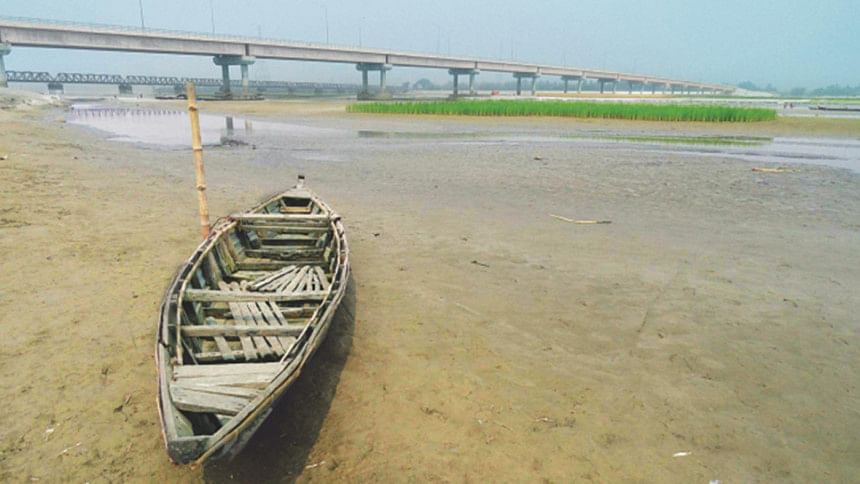Dhaka wants to know West Bengal's plan for Teesta

Dhaka has sent a note verbale to Delhi, seeking to know about West Bengal's plan to withdraw water from Teesta river for irrigation and hydropower projects, Foreign Secretary Masud Bin Momen said yesterday (Sunday).
The Ministry of Foreign Affairs recently sent the note verbale, a type of diplomatic note, to the Indian Ministry of External Affairs, he told reporters at the ministry.
He said the Ministry of Water Resources will write a letter to India asking for details about West Bengal's plan.
Last Thursday, State Minister for Water Resources Zaheed Farooque said the Joint River Commission already prepared a letter to be sent to India soon.
The river issues may also be raised at the UN-2023 Water Conference, to be held at the UN headquarters in New York on March 22-24, Foreign Ministry Spokesperson Seheli Sabrin told journalists the same day.
The issue came to the fore after The Telegraph newspaper on March 13 reported that the West Bengal government decided to set up three hydropower projects in Darjeeling hills, risking further offence to Dhaka, which has been waiting for more than a decade to sign a treaty for sharing Teesta's waters.
Two of the three planned Darjeeling projects are likely to reduce the volume of water in the Teesta that is available for irrigation, particularly during the December-April lean period when the demand for irrigation water goes up in Bangladesh, it added.
The Indian media also reported the transfer of 1,000 acres of land to the irrigation ministry of West Bengal to excavate two new canals for withdrawing water from Teesta and Jaldhaka.
NEED CLEAR IDEA ON ROHINGYA SAFETY IN RAKHINE
On reports that the first batch of Rohingyas may be repatriated soon, Masud Bin Momen said the Rohingyas and other stakeholders need to be clear about the safety and security of the places they will return to in Rakhine state, alongside the prospects for education and livelihood and other factors.
Last Thursday, a 17-member Myanmar delegation started verifying the identities of some 450 Rohingyas, as they were dropped from the list of over 1,000 Rohingyas whose repatriation was planned under a pilot project in the next few months.
Their names were dropped off the list due to some informational mismatch, according to Myanmar officials.
Momen said Bangladesh wanted Rohingyas from the same region and families to return together. However, when the list of Rohingyas was sent to Myanmar authorities, it was found that some members of the same families were dropped. Thus, the repatriation process did not go ahead.
"So, we invited the Myanmar officials to come to Bangladesh and talk to the Rohingyas in person. So, they came," he said.
He said verification of the 450 Rohingyas ends on Monday, but there are many other stages that need to be completed.
Meanwhile, the UN Refugee Agency, in a statement yesterday, said it is aware of the visit of a Myanmar delegation to Bangladesh but is not involved in these discussions.
It said conditions in Myanmar's Rakhine state are currently not conducive to the sustainable return of Rohingya refugees.
"At the same time, we reiterate that every refugee has a right to return to their home country based on an informed choice, but that no refugee should be forced to do so. Bangladesh has consistently reaffirmed its commitment to voluntary and sustainable repatriation since the onset of the current crisis," it mentioned.

 For all latest news, follow The Daily Star's Google News channel.
For all latest news, follow The Daily Star's Google News channel. 




Comments